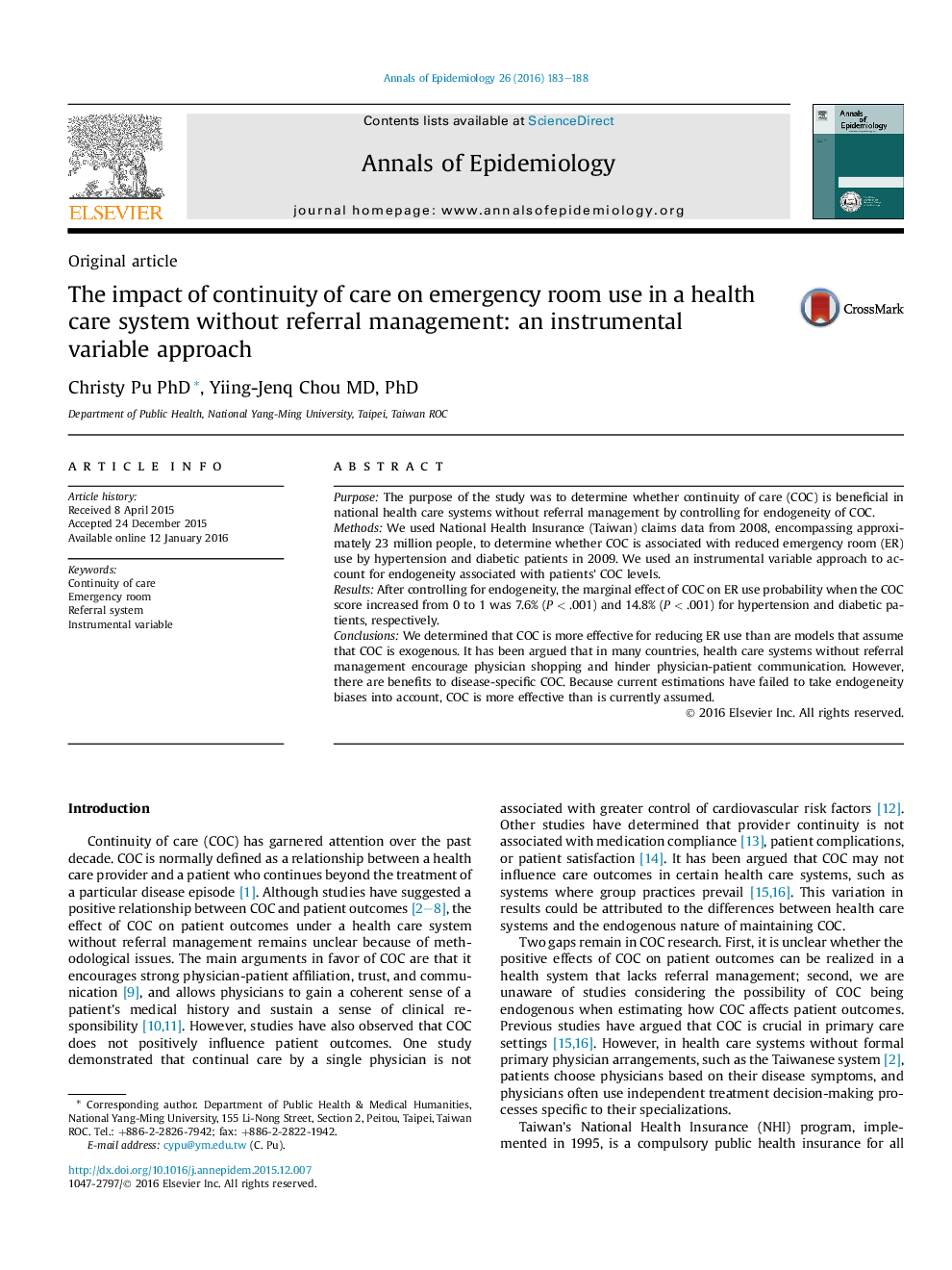| Article ID | Journal | Published Year | Pages | File Type |
|---|---|---|---|---|
| 3443653 | Annals of Epidemiology | 2016 | 6 Pages |
PurposeThe purpose of the study was to determine whether continuity of care (COC) is beneficial in national health care systems without referral management by controlling for endogeneity of COC.MethodsWe used National Health Insurance (Taiwan) claims data from 2008, encompassing approximately 23 million people, to determine whether COC is associated with reduced emergency room (ER) use by hypertension and diabetic patients in 2009. We used an instrumental variable approach to account for endogeneity associated with patients' COC levels.ResultsAfter controlling for endogeneity, the marginal effect of COC on ER use probability when the COC score increased from 0 to 1 was 7.6% (P < .001) and 14.8% (P < .001) for hypertension and diabetic patients, respectively.ConclusionsWe determined that COC is more effective for reducing ER use than are models that assume that COC is exogenous. It has been argued that in many countries, health care systems without referral management encourage physician shopping and hinder physician-patient communication. However, there are benefits to disease-specific COC. Because current estimations have failed to take endogeneity biases into account, COC is more effective than is currently assumed.
